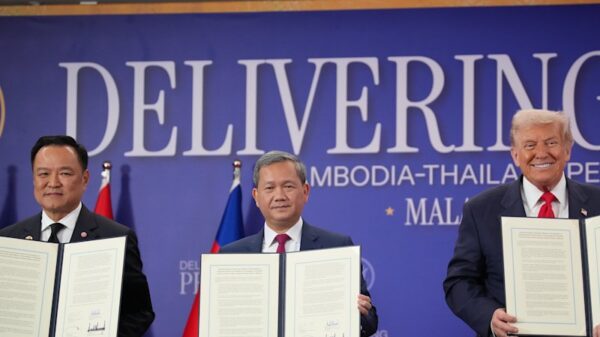The Australian Liberal Party is experiencing significant internal turmoil as debates over family values and ideological direction intensify. Key figures, including Angus Taylor and Sussan Ley, are vocalizing their concerns regarding the party’s future and its foundational principles. This debate centers around the definition of family, ideological commitments, and the implications of recent policy decisions.
In an op-ed published in the Weekend Australian, Angus Taylor argues that Liberal values must prioritize “family as the foundation of society.” This statement, while resonant with mainstream Australia, raises questions about the party’s ability to define what family means in a rapidly changing social landscape. Recent controversies, including a case involving the alleged abuse of a five-year-old girl, have further complicated the party’s stance. Ley’s call for mandatory sentencing in serious child abuse cases highlights a critical issue: the biological father of the child was housed in a women’s prison, prompting concerns about the implications of current gender policies.
The Liberal Party’s commitment to achieving Net Zero emissions by 2050, a decision made under former Prime Minister Scott Morrison, has drawn significant criticism. Many view this commitment as economically damaging, particularly as the pressures of rising electricity costs impact families and businesses alike. Critics, including Ley, emphasize the need for a reliable energy strategy that does not compromise economic stability.
As the party grapples with its identity, the divide between traditional conservative values and modern progressive ideologies becomes increasingly apparent. James Paterson has suggested that the Liberals must actively engage in the “culture wars” to reclaim their ideological ground. Conversely, Ley has previously expressed a desire for the party to avoid involvement in single-issue culture wars, leading to further fragmentation within the party.
The question of abortion remains a contentious topic, with the Liberal National Party (LNP) recently facing backlash over its stance on abortion-to-birth practices. In light of this, Jacinta Nampijinpa Price has emerged as a prominent voice, advocating for a clearer position on issues affecting families. Her active opposition to the Voice to Parliament initiative has positioned her as a key player in the ongoing ideological battle within the party.
The Liberal Party’s struggle to maintain a cohesive identity is underscored by the legacy of former Prime Minister Tony Abbott, whose leadership was marked by a commitment to conservative principles. Abbott’s successor, Malcolm Turnbull, has pointed to same-sex marriage as a significant achievement of his tenure, highlighting the party’s complex relationship with social issues. The contrasting ideologies within the party raise concerns about its future and ability to appeal to its traditional base.
The Liberal Party’s internal debates reflect broader societal changes and the challenges of defining core values in a pluralistic society. As the party navigates this landscape, the implications of its decisions will be felt not only within its ranks but also across Australian society.
In conclusion, the internal conflicts within the Liberal Party highlight a critical moment in its history. The need for a clear vision that resonates with both traditional and modern values is paramount. As the party faces these challenges, it must reconcile its ideological differences to secure a sustainable future. Without addressing these fundamental issues, the Liberal Party risks alienating its supporters and losing its relevance in Australian politics.





























































